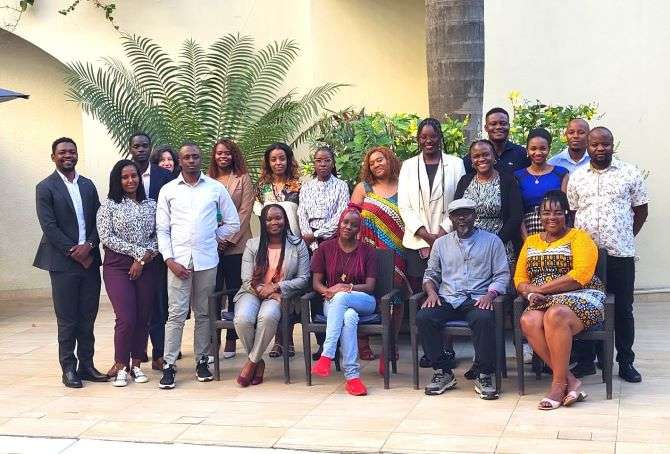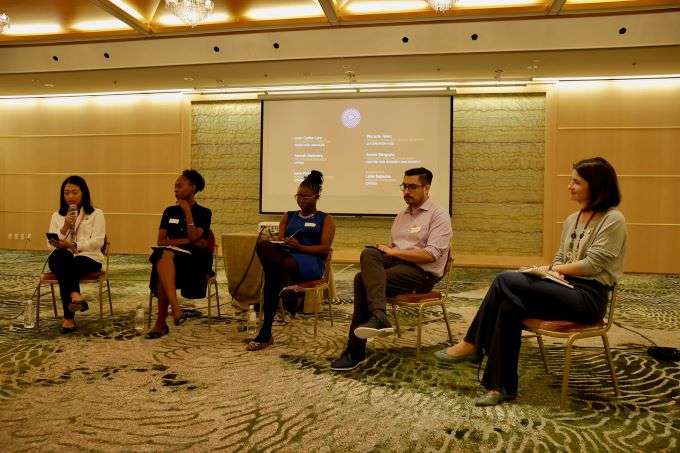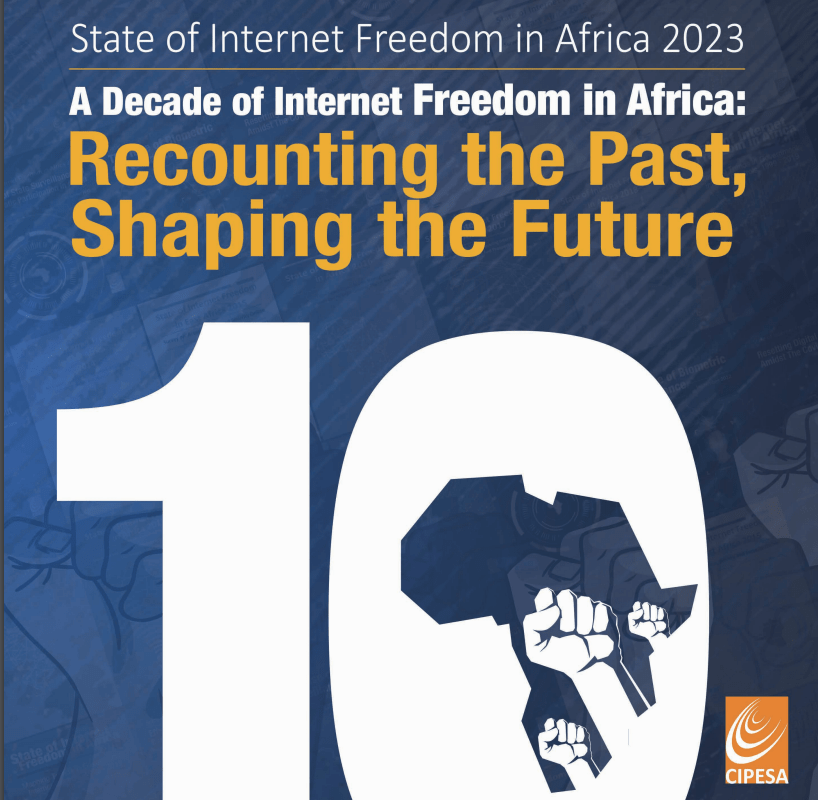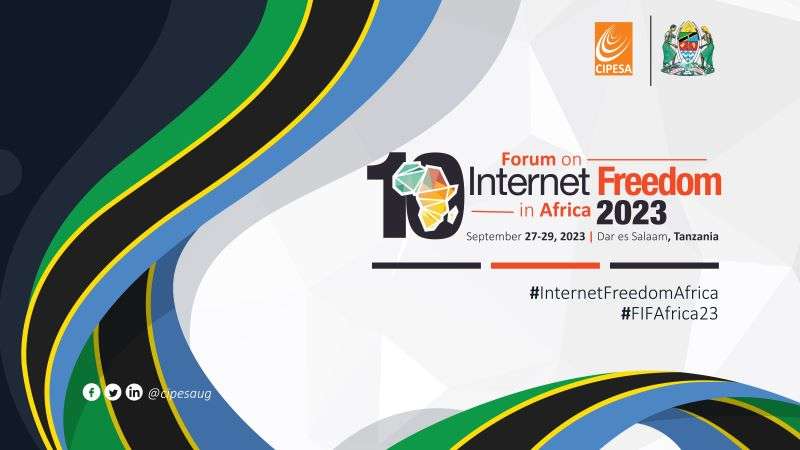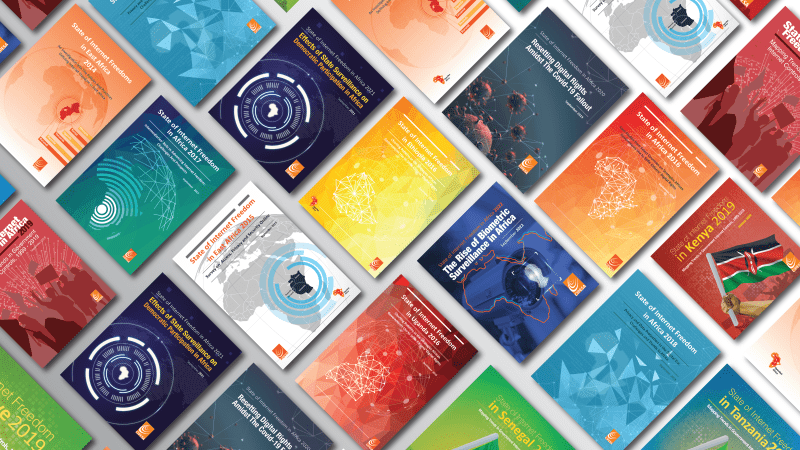Announcement |
With $15 million in seed funding, the Global Network for Social Justice and Digital Resilience supports 10 Global South-led organizations that provide technical support to civil society in Africa, Asia, Latin America, and the Middle East.
Kyoto, Japan (October 10, 2023) – Today, the Ford Foundation announced the launch of the Global Network for Social Justice and Digital Resilience, a first-of-its-kind initiative that aims to increase the technical capacities of civil society organizations across the Global South.
With $15 million in seed funding, the mission of the Digital Resilience Network is to ensure frontline organizations across the Global South can better leverage the benefits of technology while minimizing its harms, which can include online surveillance, censorship, and misinformation. The Digital Resilience Network is managed by an independent board.
This initiative supports an initial cohort of 10 organizations that provide technical support to civil society organizations in the Global South. These groups are predominantly based in Africa, Asia, Latin America, and the Middle East, where the harms and uneven benefits of technology are most pronounced.
Over the past decade, technologies have grown increasingly sophisticated in restricting, excluding, and intimidating the work of social justice communities in the Global South, including those advancing gender and environmental justice. From escalating uses of spyware that targets human rights defenders to widespread misinformation campaigns and internet shutdowns, online tactics have been weaponized to increase polarization, compromise elections, and undermine democratic processes.
Groups offering technical support and consultation to civil society are limited and have long been concentrated in the Global North. Civil society in the Global South lacks access to in-region technical experts who can answer the growing needs and demands of frontline social justice organizations in their local and cultural contexts.
The Digital Resilience Network, launched at a side event at the United Nations Internet Governance Forum, addresses these field-wide issues by supporting a cohort of Global South-based technical support organizations who will network, accelerate learning, and transfer technical capacities and knowledge to frontline civil society organizations, where the greatest needs and threats related to technology exist. The Network incorporates equality, inclusion, diversity, and feminist values into its processes. It aims to:
- Increase domestic and regional tech capacity among social justice organizations in the Global South
- Diversify the field of technologists to include more leaders who are women, nonbinary, and gender-nonconforming, are people of color, and are from communities of color
- Foster South-to-South peer learning among organizations working to strengthen digital infrastructure and resilience
- Increase global strategic collaboration among social justice and technology organizations
- Increase funds supporting the strengthening of digital resilience for social justice organizations
“The Global Network for Social Justice and Digital Resilience is a critical tool to advance social equity and counter the digitally-driven democratic backslide across the Global South,” said Alberto Cerda Silva, program officer of Ford Foundation’s Technology and Society program. “Whether it’s confronting malicious software that targets civil society or building avenues for social justice communities to leverage the benefits of technology, in-region technical support is key. This initiative brings to life the thesis that those closest to the challenge are closest to the solution. We hope this project serves as a model for philanthropy going forward.”
Network members have spent years at the leading edge of digital resilience but have lacked the resources needed to address the manifold digital threats that civil society faces. The work of these groups has ranged from conducting threat intelligence to providing security support including digital, legal, and physical elements; from equipping disconnected communities with autonomous infrastructures to advancing digital inclusion for people with disabilities.
“It’s impossible to overstate the need for a digital resilience network focused on the Global South,” said Ashnah Kalemera, program manager for the Collaboration on International ICT Policy for East and Southern Africa. “It promotes South-to-South peer learning and a chance to share experiences from Africa, the Middle East, Asia, and Latin America. The opportunity to share knowledge about opportunities and challenges excites us the most. We are grateful to have the chance to learn, reflect, and adapt with sister organizations.”
The initial cohort supported by the Digital Resilience Network are Núcleo de Pesquizas, Estudios y Formación (Brazil), the Citizen Lab (Canada), Derechos Digitales (Chile), Fundación Acceso (Costa Rica), The Engine Room (Global), Centre for Internet & Society (India), Social Media Exchange (Lebanon), SocialTIC (Mexico), Co-Creation Hub (Nigeria), and Collaboration on International ICT Policy for East and Southern Africa (Uganda).
“Digital resilience holds equity at its core,” said Paola Mosso, co-deputy director of The Engine Room. “It points to the ability of organizations to design digital ecosystems where everyone can participate in meaningful ways by keeping infrastructures human and environment-centered, safe, and adaptable to ever-changing contexts.”
This article was first posted by the Global Network for Social Justice and Digital Resilience on Oct 10, 2023

